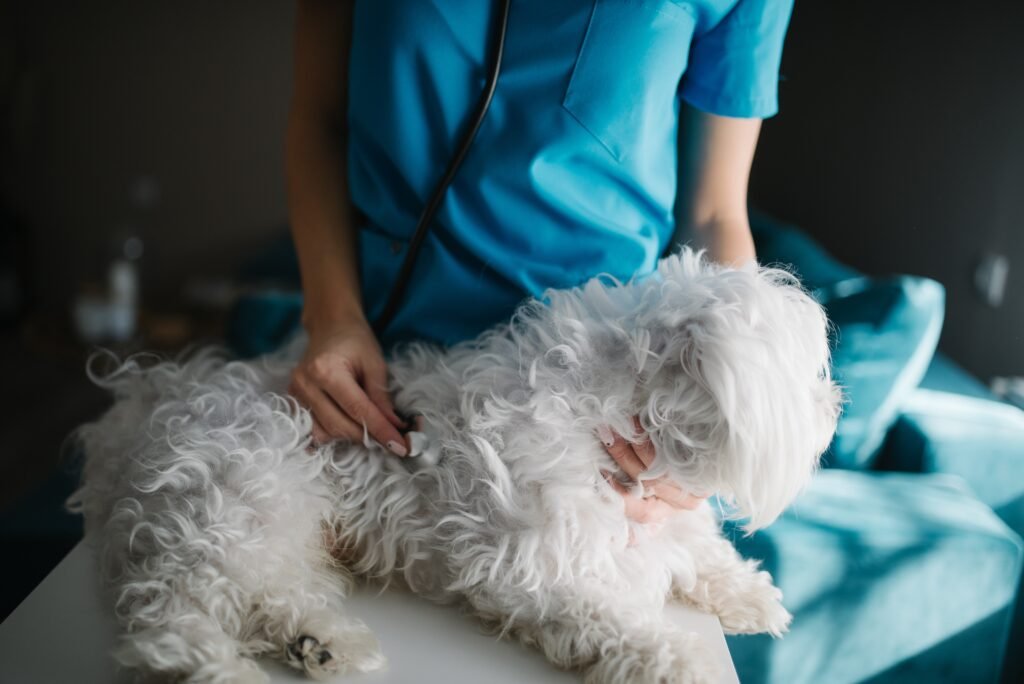Have you ever noticed your dog repeatedly licking his lips and wondered if it’s just a quirky habit or something more serious? It’s a moment that can fill any dog lover with concern or curiosity. Sometimes it’s adorable, but other times it feels like a silent signal—maybe even a cry for help. Dogs can’t tell us exactly what’s wrong, but their body language speaks volumes. Lip licking is one of those mysterious behaviors that often leaves pet owners guessing. Let’s unravel what your dog might be trying to tell you, and why this small action could mean so much more.
Normal Behavior or a Sign of Something More?
At first glance, lip licking might seem harmless or even cute, especially when your pup is eyeing a treat. Many dogs lick their lips as a normal reaction to seeing food or anticipating a tasty snack. However, it’s important to pay attention to when and how often your dog is doing it. If it happens frequently or in odd situations—like when there’s no food around—it could be a subtle signal that your dog feels uncomfortable or stressed. Just like people might bite their nails or twirl their hair during anxious moments, dogs have their own little nervous ticks. Always consider the context; a single lick isn’t a red flag, but repeated, unexplained licking deserves a closer look.
The Stress Factor: Understanding Canine Anxiety
Dogs can’t use words to tell us when they’re stressed, so they rely on body language. Lip licking is one of the most common signs of anxiety in dogs. You might notice this behavior during thunderstorms, car rides, or when meeting new people or animals. Sometimes it’s paired with other signs like yawning, panting, or avoiding eye contact. Think of it as your dog’s way of saying, “I’m not comfortable right now.” This is especially true for dogs that are sensitive to changes in their environment. If you notice your pup licking his lips in specific situations, try to pinpoint what might be causing his stress and comfort him with gentle words or a favorite toy.
Health Problems Hiding Under the Surface
Sometimes, lip licking isn’t about emotions at all—it’s about physical discomfort. Dental issues like gum disease, mouth ulcers, or a broken tooth can make a dog lick his lips constantly. Even something as simple as a piece of food stuck in his teeth can cause this reaction. Dogs are masters at hiding pain, so behaviors like excessive lip licking might be one of the few clues you get. Gastrointestinal problems, such as nausea or acid reflux, can also lead to this behavior. If the licking is sudden or comes with other symptoms—like drooling, pawing at the mouth, or loss of appetite—it’s time to call your vet for a check-up.
Lip Licking as a Communication Tool
Did you know your dog could be using lip licking to “talk” to you or other dogs? In the canine world, this behavior is a calming signal—a way to diffuse tension and avoid conflict. If your dog feels threatened or nervous, he might lick his lips to show he’s not a threat. It’s a bit like a doggie peace sign. If you see this during playtime with other dogs or when someone new enters your home, it’s a gentle request for everyone to stay calm. Understanding these signals can help you create a more comfortable and safer environment for your furry friend.
Allergies and Environmental Irritants
Just like people, dogs can suffer from allergies. Pollen, dust, cleaning products, or certain foods can irritate their mouths and skin, leading to excessive lip licking. Sometimes, you’ll also notice red, inflamed skin around the mouth or increased scratching. Seasonal allergies are especially common in the spring and fall. If you suspect allergies might be to blame, keep track of when the licking gets worse and talk to your vet about possible treatments or lifestyle changes. Regularly cleaning your dog’s living area and switching to hypoallergenic products can make a world of difference.
Obsessive Behaviors and Compulsive Disorders
For some dogs, lip licking goes beyond stress or health issues and becomes a habit they just can’t break. This repetitive behavior can develop into a compulsive disorder, much like a person who can’t stop tapping their foot. Dogs who are bored, under-stimulated, or left alone for long periods are more prone to developing these habits. Over time, compulsive licking can lead to sore spots or even infections. Providing plenty of toys, regular exercise, and mental stimulation can help keep these behaviors at bay. If the problem persists, consulting a veterinary behaviorist might be necessary.
Medications and Side Effects
Certain medications can cause dry mouth or nausea, both of which might make your dog lick his lips more often. If your dog has recently started a new prescription and you notice increased lip licking, it’s wise to check the medication’s side effects. Sometimes, a simple adjustment in dosage or switching to a different medication can resolve the issue. Don’t stop any prescribed medicine without consulting your vet, but always keep them informed of any new or unusual behaviors you notice.
When to Seek Veterinary Help

It’s always better to be safe than sorry when it comes to your dog’s health. If you notice excessive lip licking paired with other changes—like loss of appetite, vomiting, diarrhea, or sudden aggression—it’s time to reach out to your vet. Pay close attention to any signs of pain, especially around the mouth, as dental issues can escalate quickly. Early intervention can save your dog from unnecessary discomfort and prevent minor issues from becoming serious problems. Trust your instincts; you know your dog best, and even a small change in behavior can sometimes be the first clue that something’s wrong.





